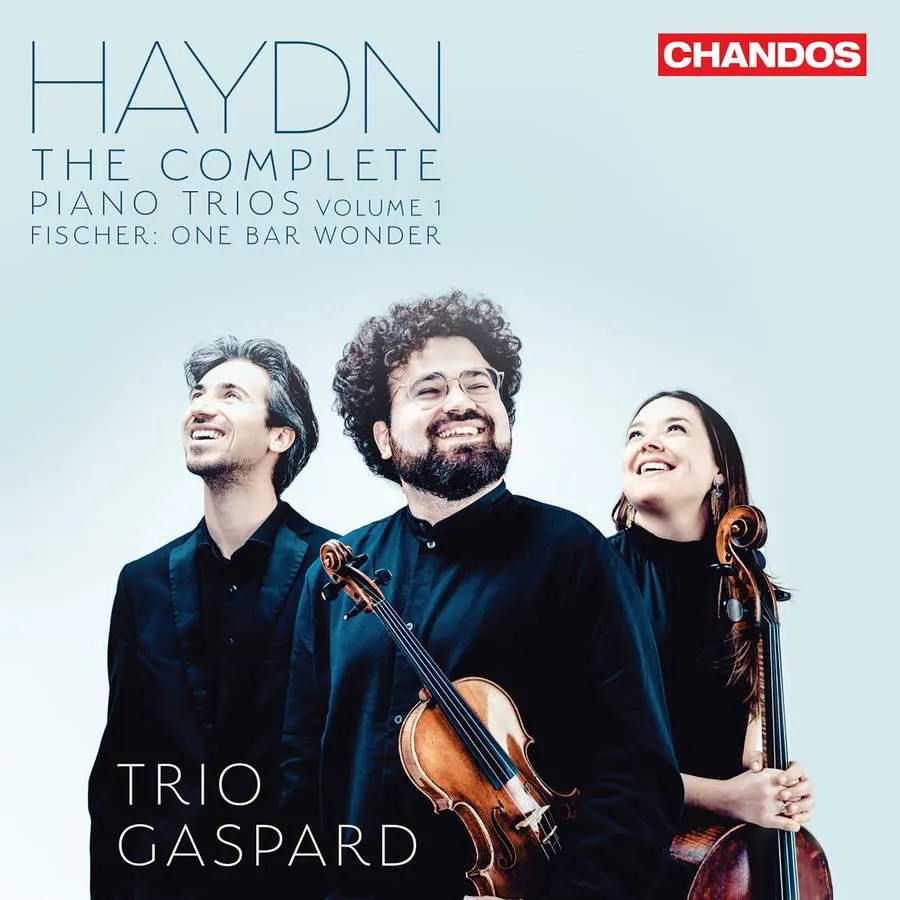
Haydn Piano Trios, Vol. 1: Hob.XV:7, Hob.XV:10, Hob.XV:18, Hob.XV:24, Hob.XV:26; plus Johannes Fischer: one bar wonder Trio Gaspard Chandos CHAN 20244 70:28 mins
The Trio Gaspard’s project to record the complete Haydn trios for Chandos gets off to a good start with five great works from the mid-1780s and mid-1790s. All of them show Haydn at his most adventurous, with perhaps the most memorable of them being the Trio in F sharp minor Hob.26 – the last of the composer’s three masterpieces in this unusual key, following on from the ‘Farewell’Symphony No. 45 and the String Quartet Op. 50 No. 4. Trio Gaspard capture the melancholy of its outer movements and the radiant calm of its Adagio (Haydn used it again in his ‘London’ Symphony No. 102) very well.
No less impressive are their account of the first movement of the A major Trio Hob.18, with its mysterious central development section; and their evocative interpretation of the siciliano-like slow movement from the D major Hob.7. The Gaspard players like to keep the music sounding lively and spontaneous, and although their improvised runs and ornaments are discreet, this may not be to everyone’s taste.
It was an enterprising idea to commission a new work to go with each new release in the series, and here one bar wonder by the percussionist and composer Johannes Julius Fischer takes a single bar from the Trio Hob.7 and gradually deconstructs it. It only lasts five minutes, but you may feel you never want to hear a D major chord again. The Trio’s pianist, Nicholas Rimmer, contributes an insightful note on Haydn’s trio writing, but it’s a pity the piano sounds a touch overly spacious on the recording itself.
Misha Donat
More reviews
Aida Garifullina gives a debut to remember
John Eliot Gardiner leads a virtuosic album of Mendelssohn
Sir Andrew Davis conducts visionary Vaughan Williams
Julien Brocal plays spellbinding Chopin
Les Siècles and François Xavier-Roth perform Ligeti
The Prague Phliharmonic Choir perform Martinu’s late cantatas
